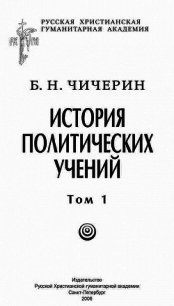Политика и рынки. Политико-экономические системы мира - Линдблом Чарльз (читать книги онлайн бесплатно регистрация .txt) 📗
Paul Dibb. «Soviet Agriculture since Khrushchev: An Economic Appraisal» in «Comparative Economic Systems: A Reader», ed. Marsall I. Goldman, 2nd ed. [New York: Random House, 1971], p. 372. J. Wilczynski. «The Economics of Socialism» (London: Allen & Unwin, 1970), p. 120ff, особенно c. 123; Frederick W. Cook. «The Commune System in the People’s Republic of China, 1963-1974», U.S. Congress Joint Committee Print, «China: A Reassessment of the Economy» 94th Congress, 1st session, 1975, p. 399ff; Carmelo Mesa-Lago. «The Revolutionary Offensive» // «Trans-Action» 6 (April 1969): 23.
22
Dwight H. Perkins. «Market Control and Planning in Communist China» (Cambridge, Mass.: Harvard University Press, 1966), pp. 33-93. Из-за применения соответствующей системы стимулов в Китае, возможно, в гораздо меньшей степени, чем в СССР, крестьянам, занятым в индивидуальном производстве или производстве бригадным методом, разрешается заниматься малым предпринимательством и ремеслами — например, изготовлением керамики и изделий из древесины. Политические подходы могут различаться по степени ограничений, устанавливаемых на деятельность подобного рода (Crook. «The Commune System», p. 332).
23
Dibb. «Soviet Agriculture», p. 363; Wilczynski. «The Economics of Socialism», p. 123; Robert Conquest, ed. «Agricultural Workers in the U.S.S.R.» (London: Bodley Head, 1968), p. 114.
24
Prybyla. «Political Economy», pp. 350-351; Barry H. Richman. «Industrial Society in Communist China» (New York: Random House, 1969), p. 544.
25
Conquest. «Agricultural Workers», pp. 8-9.
26
Северная Корея также в настоящее время проводит эксперименты по использованию различных методов морального стимулирования. См. в: Byung Chul Koh. «North Korea: Profile of a Garrison State» // «Problems of Communism» 18 (January-February 1969): 22; Joungwon Alexander Kim. «The ‘Peak of Socialism’ in North Korea: The Five and Seven Year Plans» in «Comparative Economic Systems», ed. Jan S. Prybyla (New York: Appleton-Century-Crofts, 1969), pp. 417,423.
27
Wilczynski. «The Economics of Socialism», pp. 107-108, 164.
28
Emily Clark Brown. «Continuity and Change in the Soviet Labor Market» in «The Soviet Economy», eds. Morris Bernstein and Daniel R. Fusfeld, 4th ed. (Homewood, Ill.: Irwin, 1974); Wilczynski. «The Economics of Socialism», p. 99; E. H. Phelps Brown. «The Economics of Labor» (New Haven, Conn.: Yale University Press, 1962), pp. 122-123; Merle Fainsod. «How Russia Is Ruled», rev. ed. (Cambridge, Mass.: Harvard University Press, 1963), pp. 106-107.
29
Alexander Eckstein. «China’s Economic Development» (Ann Arbor: University of Michigan Press, 1975), pp. 362-364.
30
Carl Riskin. «Workers’ Incentives in Chinese Industry» in Joint Economic Committee, China.
31
Prybyla. «Political Economy», pp. 261-262.
32
Carmelo Mesa-Lago. «The Labor Sector and Socialist Distribution in Cuba» (New York: Praeger, 1968), chapter 3.
33
Mesa-Lago. «Economic Significance of Unpaid Labor in Socialist Cuba» // «Industrial and Labor Relations Review» 22 (April 1969).
34
Mesa-Lago. «Cuba in the 1970’s», p. 48.
35
James M. Malloy. «Generation of Political Support and Allocation of Costs» in «Revolutionary Change in Cuba», ed. Carmelo Mesa-Lago (Pittsburgh: University of Pittsburgh Press, 1971), p. 35.
36
Raul Castro in «New York Times», 8 December 1972, p. C. 11.
37
Mesa-Lago. «Cuba in the 1970’s», p. 70.
38
Frank N. Trager and William Henderson, eds. «Communist China, 1949-1969» (New York: New York University Press, 1970), p. 50; Donald DeGlopper. «Recent Changes in Chinese Society» // «The Annals» 402 (July 1972): 25; Frederick G Barghoorn. «Politics in the U.S.S.R.», 2nd ed. (Boston: Little, Brown, 1972), p. 70; Roberto E. Hernandez and Carmelo Mesa-Lago. «Labor Organization and Wages» in «Revolutionary Change», ed. Mesa-Lago, p. 210ff.
39
Richman. «Industrial Society», pp. 147, 163.
40
Ibid., p. 304.
41
Riskin. «Workers’ Incentives», p. 214ff; Ritter. «Revolutionary Cuba», pp. 327-329.
42
Richard R. Fagen. «The Transformation of Culture in Cuba» (Stanford, Calif.: Stanford University Press, 1969), p. 142.
43
Robert M. Bernardo. «The Theory of Moral Incentives in Cuba» (University, Ala.: University of Alabama Press, 1971), pp. 54-55; Riskin. «Workers’ Incentives», p. 215.
44
В Китае материальные вознаграждения участникам соцсоревнований отменены (Riskin. «Workers’ Incentives,» р. 222).
45
Bernardo. «Moral Incentives», pp. 60-61.
46
Arvid Brodersen. «The Soviet Worker» (New York: Random House, 1966), p. 135.
47
Richard Lowenthal. «Development vs. Utopia in Communist Policy» in «Change in Communist Systems», ed. Chalmers Johnson (Stanford, Calif.: Stanford University Press, 1970).
48
Mesa-Lago. «Cuba in the 1970’s», pp. 44-45.
49
Archibald R. M. Ritter. «The Economic Development of Revolutionary Cuba: Strategy and Performance» [New York: Praeger, 1974], pp. 264-269; Riskin. «Workers’ Incentives»,p. 215.
50
Richman. «Industrial Society», p. 53.
51
Например, см.: Eckstein. «China’s Economic Development», p. 366.
52
Charles Hoffman. «Work Incentives in Chinese Industry and Agriculture» in U.S. Congress, Joint Economic Committee, «An Economic Profile of Mainland China», 90th Congress, 1st session, 1967, vol. 2, pp. 491-492; Brodersen. «The Soviet Worker», pp. 132-138.
53
Bernardo. «Moral Incentives», pp. 67-68.
54
Ibid., p. 120.
55
Malloy. «Political Support», p. 37ff.
56
Ritter. «Revolutionary Cuba», p. 326ff.
57



